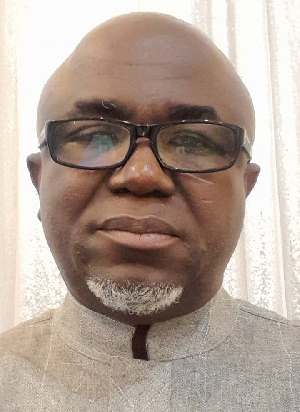For decades, France has toyed with the Francophone countries using "democracy" as the vehicle. When a new president assumed power in any of those countries, he would be summoned to Paris, wined and dined, and presented with two options:
1, Maintain the status quo of France's continued exploitation of your country (although not so explicitly stated) and have a nice life for you and your family.
2, Try to fight the status quo and risk having your opposition adequately resourced to replace you, or - worse, and in the past - assassinated.
For decades, the decisions have been simple. The leaders acquiesced and the French exploitation continued. France even began helping those corrupt leaders to fidget with their respective constitutions to facilitate the extension of their reign beyond the traditional two terms.
Enter former AU Ambassador to the United States Dr. Arikana Chihombori Quao.
When Dr. Quao began exposing details of France's exploitation of its former colonies, it lit a fire underneath the francophone youth in those countries and they began to agitate against the status quo.
This led to the toppling of governments by young military officers in Mali, then Guinea, then Burkina Faso, then Niger. Senegal is the exception to these military takeovers because the youth there have managed to secure power from the old guard through the constitutional process.
ECOWAS should have correctly analyzed and diagnosed these developments and engaged the new young leaders in a more constructive manner. Instead, it resorted to the old, ineffective formula of slapping sanctions on them and thereby hardened their stance against the regional body.
Not surprisingly, each of these new military leaders have exited ECOWAS, with Senegal also exiting a few days ago.
Whether ECOWAS remains relevant remains to be seen. Of the 14 original member countries, eight are francophone. Of the eight, five (Burkina Faso, Guinea, Niger, Mali, and Senegal) have since left the regional body or have unhealthy relations with it.
The challenger for current Chair President Tinubu of Nigeria is whether he would recognize the reality of a new francophone West Africa and engage them accordingly, of pursue the heavy-handed approach that has not worked to this point.
One thing is certain - the francophone youth will never retreat from their current posture.
Opinions of Monday, 20 May 2024
Columnist: Jermaine Nkrumah



















